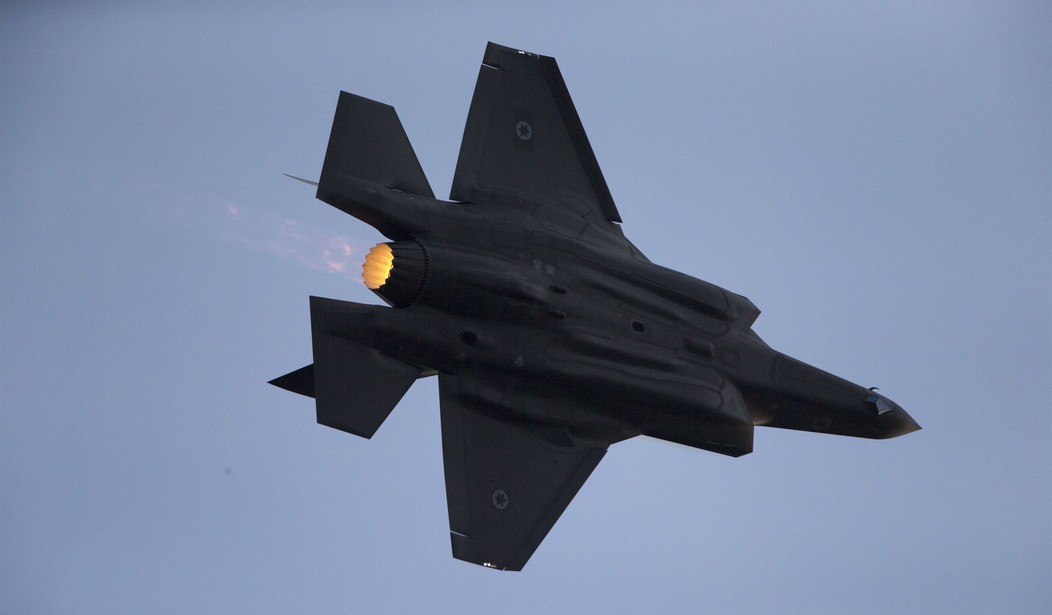Israeli warplanes hit Iran over the weekend while I was enjoying my weekly 48-hour news coma, but being late to this story didn't matter because we're only now learning the true damage done. So let me start by assuring you that the headline to this column is no exaggeration, but stick a pin in that thought so you can take in what the Israeli Air Force (IAF) accomplished.
Reports are that somewhere between one-third and one-half of the IAF took to the skies on Friday night — a remarkable feat in itself if you know anything about what it takes to ready and arm a sophisticated warplane — and every single one of them returned home safely.
An open-source intelligence writer who uses the handle Raylan Givens — I've followed and trusted him for a couple of years now — gave the rundown on the operation, "courtesy of IDF Radio and with the approval of the military censor."
"The attack destroyed ALL of Iran's long-range surface-to-air missile batteries," according to Givens' translation of the IDF Radio report. "All long-range detection radars were also destroyed. Iran is left with only short-range batteries of local Iranian models."
Again bowing to Western pressure, Israel left Iran's oil and nuclear facilities intact, but the IAF brutalized Iran's missile production sites. While "Iran possesses more than 2,000 long-range ballistic missiles," by most estimates, "the production of new missiles was crippled. From now on, Iran will operate with a finite supply because the stockpile it has will not be able to grow for months or years."
The major upshot is this:
The IDF's assessment: Iran has lost its strategic defense capabilities for the next 2-3 years. Russia will not be able to provide new systems due to the war in Ukraine, and it will take a long time to produce domestic Iranian systems.
"Iran’s oil economy is now defenseless. Third, Israel struck key nodes in Iran’s ballistic-missile production and hit a military target in Parchin, where Iran has worked on nuclear weaponization," the Wall Street Journal noted.
Along the way, IAF jets destroyed air defense sites in Syria and Iraq, too. That must have Iran's political allies in Damascus and Baghdad wondering if it's still safe to sleep in their own beds.
For whatever it's worth, Tehran says vengeance is coming. “Zionists are making a miscalculation with respect to Iran,” Supreme Leader Sayyid Ali Khamenei tweeted on Sunday. But Tehran also says it "does not want a wider war."
I'm not naive enough to believe there is nothing Tehran can do after Friday night's massive air raid, but it did limit their options. Before Friday night, the mullahs felt confident enough in the air defenses (and in political pressure applied against Jerusalem by the Biden-Harris administration) to launch two salvos at Israel. All told, something like 600 missiles, rockets, and drones in two attacks since April — to almost zero effect. Now their shield has been stripped away.
The next time the IAF has to strike, the only thing they'll have to worry about is Iran's short-range missile systems — the same ones that have proved so ineffective time and again.
The Mullahs' regime was stripped naked Friday night, but the message sent (and received) was a simple one: "Nothing is safe for you any longer."
Recommended: How to Stage an Intervention on 70 Million TDS Sufferers
P.S. If you aren't already a VIP supporter, please consider helping us keep independent news and analysis alive, and don't forget our 60% off FIGHT promo code. If you're already a VIP member, you can upgrade to Platinum here.










Join the conversation as a VIP Member